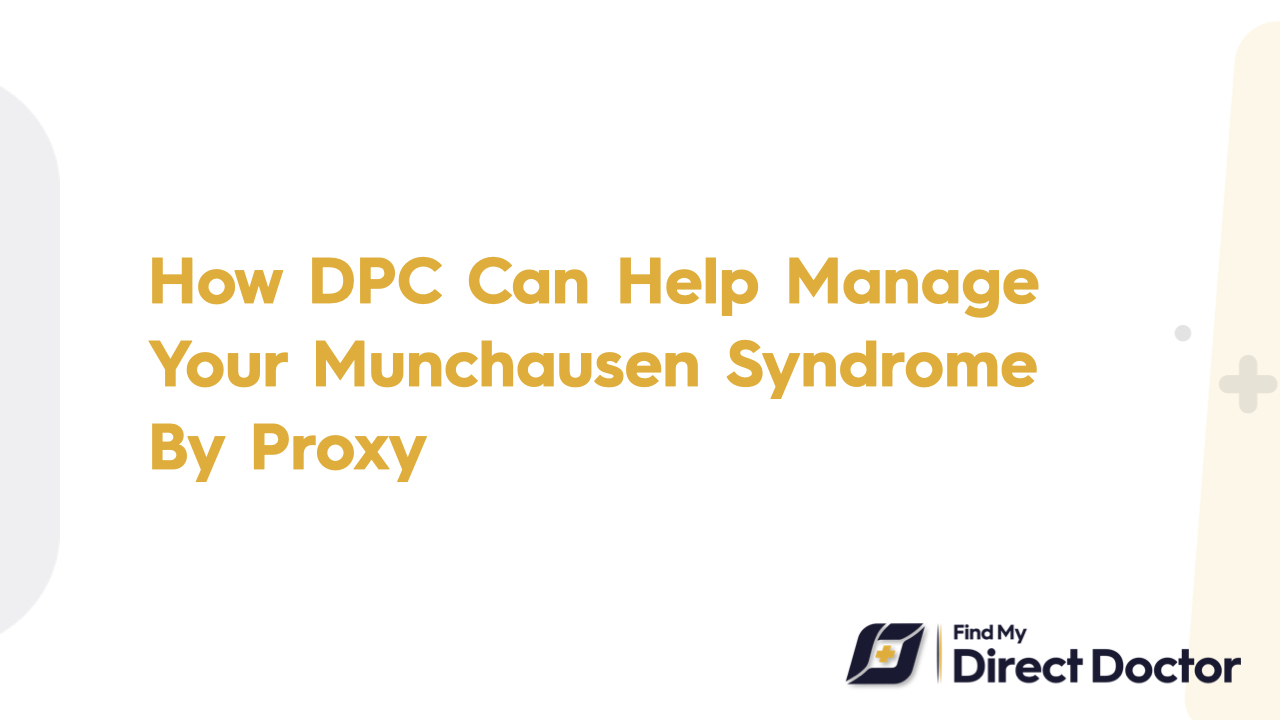



Munchausen Syndrome by Proxy (MSBP) is a psychological ailment in which a caretaker, generally a parent or guardian, purposefully makes another person, usually a kid, sick or injured in order to get pity or attention. Frequent hospital stays, erratic medical histories, and a pattern of symptoms that don't match up with tests or diagnosis are all signs of MSBP. Additionally, the caregiver might offer medical personnel inaccurate information about the child's health or exaggerate symptoms, which could result in needless procedures and treatments.

By encouraging a constant and trustworthy interaction between the patient and the healthcare professional, Direct Primary Care (DPC) can be extremely important in the management of Munchausen Syndrome by Proxy. The healthcare professional has more time to gain a thorough understanding of the patient's medical history and behavior in a DPC setting. This can assist in spotting trends in the reported symptoms and needless medical procedures. DPC enables a more comprehensive and individualized approach to patient health monitoring and can offer a private setting for discussing any potential MSBP concerns.
DPC provides a nonjudgmental and supportive approach to healthcare for those with Munchausen Syndrome by Proxy. The clinician can create a thorough medical record and identify any discrepancies in symptoms reported if they spend more time with each patient. DPC offers a comprehensive approach to care by facilitating improved cooperation with mental health specialists. Given that MSBP frequently entails intricate emotional and psychological problems, DPC providers are able to supply continuous assistance, collaborating with experts to guarantee the patient's and caregiver's wellbeing.
Understanding the particular needs of the caregiver and the impacted kid is the main goal of Proxy's personalized care in the context of Munchausen Syndrome in DPC. By providing individualized care, DPC doctors are able to evaluate the patient's mental and physical health in a manner that is challenging in conventional settings. By using this method, the healthcare professional can deal with the underlying issues that are causing the caregiver's behavior and offer therapy and assistance when required. Additionally, DPC makes it possible to monitor medical treatments more effectively, preventing needless interventions and guaranteeing that the right care is given.
Previous Post